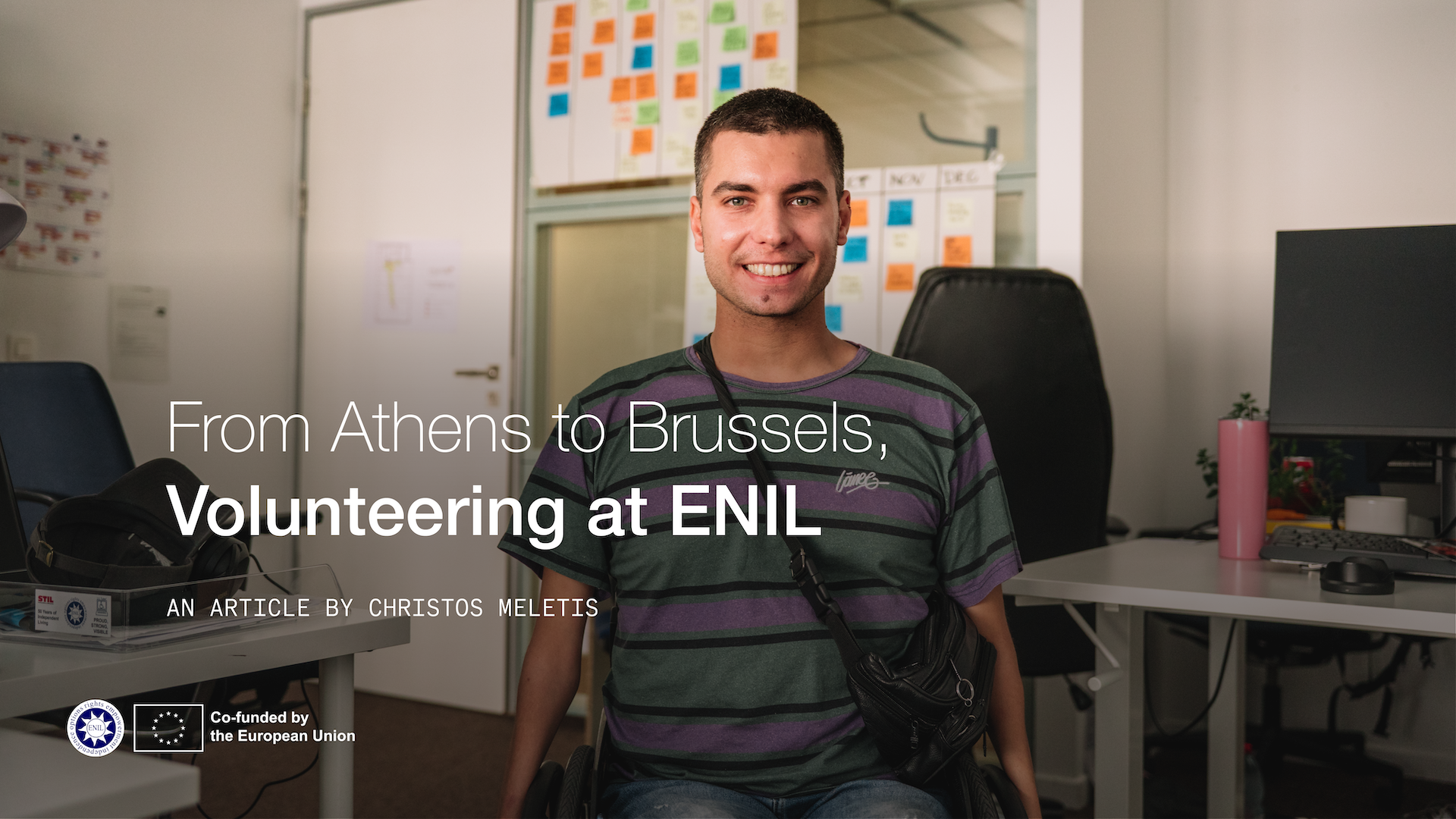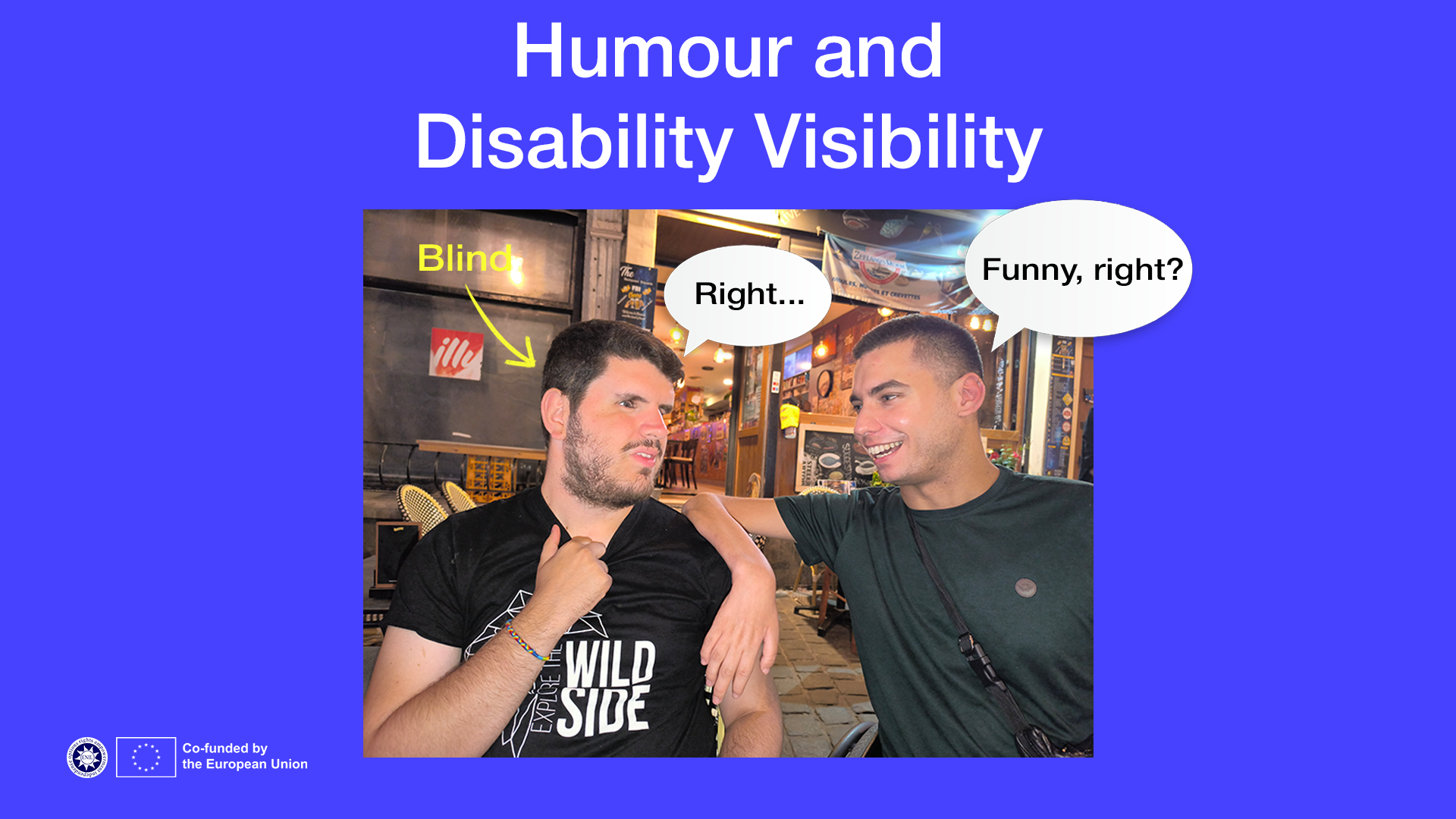This year, Sumero from Bosnia and Herzegovina became an associate member of ENIL. In this article, they share information about their work.
Sumero promotes human rights, advocacy and self-advocacy of intellectually disabled people to achieve social inclusion through deinstitutionalization, including the implementation of comprehensive community-based services and housing. This consists of giving disabled people the opportunity to live in community houses with psycho-social assistance, in order for them to achieve their freedoms (mobility, expression) by making new social relations, learning how to take care of themselves (cooking, shopping, cleaning…) and gain their independence while knowing their rights. We now gather 26 small local non-profit associations to promote the rights of persons with different types of disabilities in the two major parts of Bosnia and Herzegovina; the Federation of BiH and the Republika Srpska.
The post-war recovery and democratization process have been remarkably slow compared to the neighbouring countries. More than 20 years after the war, the country still faces many challenges in implementing: a system of sustainable development, adequate social policies and protection of the rights of all citizens. People with disabilities are the most marginalized and least socially included group. They face many barriers to their social participation and inclusion, such as discrimination, limited access to services (education, healthcare, transports…) and poverty. The lack of accountability by the government towards disabled people is unbelievable. Even if BiH ratified the Convention on the Rights of Persons with Disabilities in 2009, real actions and changes are weak and encounter many impediments – the lack of state support, limited financial capacity, lack of political will, commitment and positive discrimination measures.
The major positive impact of this ratification was that it gave opportunities and right to organizations like ours to strengthen disabled people’s freedom and independence (actions, awareness, laws). It also gave us recognition for our actions and permitted us to sign contracts with Municipalities and Ministries to define that deinstitutionalization and prevention of institutionalization of people with disabilities needs to be implemented. These entities gave a credential to Sumero to provide community-based services as every social institution in BiH in the long run. However, the capacities of these municipalities and cantons are also limited.
The promotion of independent living for disabled people faces many obstacles. The violation of their rights and freedoms still goes on in the current closed institutions supported by the Government. As disabled people mostly stay in those residential closed institutions all their life, isolation, degradation and marginalization are created. The institutions are overcrowded and under-staffed, which means that individuals lack assistance and care. The individual issues are mostly resolved with medication, that is neither efficient nor helpful; individual therapeutic support is rare. The 4 major closed institutions accommodate around 3,000 disabled people. Moreover, the state promotes these types of institutions (financially), which illustrates the failure of the system for social protection to provide support, assistance and specialised support. All of this contributes to the lack of social inclusion, to the society’s prejudices and to the prevention of people with disabilities from living a dignified life.
The consideration and awareness of the situation of people with disabilities has to increase, so that any reforms can be made efficiently. The increasing support for our types of organizations and actions is also needed to pursue deinstitutionalization through local communities, with individualised support. By promoting the issues that are currently at stake in our country and increasing the pressure (or sanctions) imposed on our state, we may be able to enhance its will to implement and increase social protection, services, and government responsibility for disabled people. This could help increase the will of the state to support and promote deinstitutionalization over institutionalization – so that we can have a society where persons with intellectual disabilities and their families equally participate in all aspects of life, have choices, possibilities and respect.


